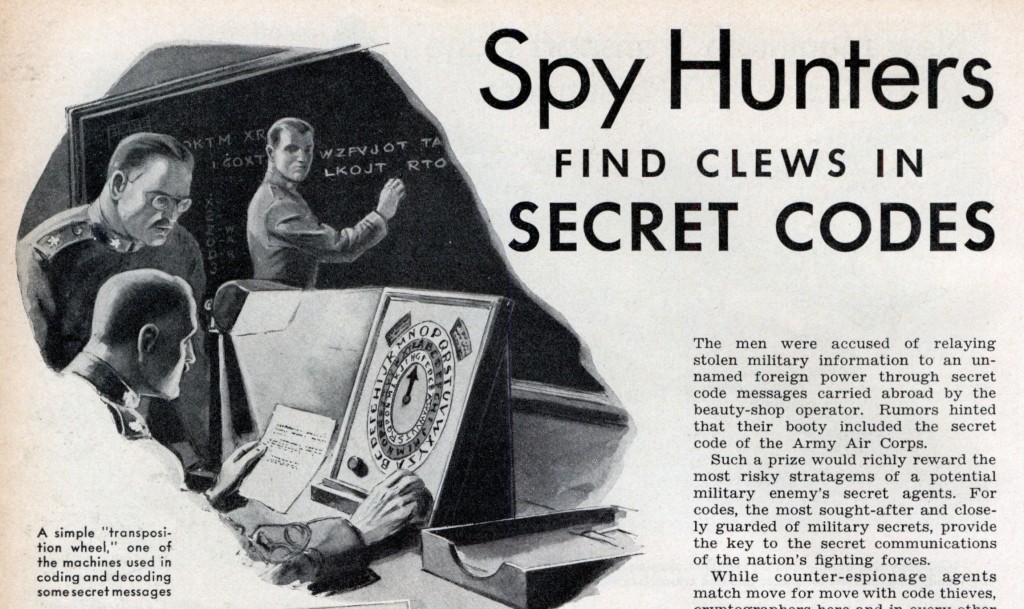 A while back a couple Edge posts appeared on the topic of “code switching” (Merinda’s post is here and Monica’s is here). Listening to NPR this morning I heard a story on the NSA’s use of codewords for its various clandestine projects — how it follows longstanding conventions in writing them as one word and in all caps, like SHARKFINN, KEYSTONE, or DISHFIRE — and that made me think again on the topic of code switching.
A while back a couple Edge posts appeared on the topic of “code switching” (Merinda’s post is here and Monica’s is here). Listening to NPR this morning I heard a story on the NSA’s use of codewords for its various clandestine projects — how it follows longstanding conventions in writing them as one word and in all caps, like SHARKFINN, KEYSTONE, or DISHFIRE — and that made me think again on the topic of code switching.
Back toward the end of June 2013 I wrote to Merinda and Monica and asked a couple questions, linked to our group’s shared interest in how attempts to study marginality sometimes — ironically and perhaps unintentionally — reproduces the authority of a normative center. I wrote:
… [i]t strikes me that “code switching” is a[n] … imperial category yet no one realizes it. What do you think?
For, much like the way “creole” normalizes that which is itself a variety by portraying only some languages “as” mixes (when in fact they are all mixes), code switching names a domain of linguistic variation within what is all variation to begin with — that is, all language is code switching, making it synonymous with language, much as creole is actually synonymous with culture.
While we can debate the degree of variation, perhaps (though I’m not confident with that either, since who says what end of the continuum is THE end or is TOO far, etc.), we seem only to name language practices “as” code switching when it is non-dominant language that can be demonstrated to be different when the non-dominant interacts with dominants vs. interacting within the marginal community itself. In other words, “code switching” normalizes dominance “as if” it is a homogenous, uniform, stable language system (when, in fact, I code switch all the time, right? I speak to students differently than to my wife and my dad and my friends…, whereas the non-dominant is seen as being spry and witty to out-fox the master narrative…. But we’re all doing it, no?
The simple question [is]: whose variation gets to count as variation…?
In the same way, the NPR story’s preoccupation with the exotic nature of NSA codewords merely mystifies the no less exotic nature of all language, for it’s not as if “pencil” (English), “карандаш” (Russian), “blýantur” (Icelandic), “bút chì” (Vietnamese), “鉛筆” (Japanese), “Bleistift” (German) or “pensil” (Welsh) — let alone in American Sign Language! — are somehow merely ordinary language, naturally and transparently in synch with the world or my understanding. While one may more or less tightly control access to the privileged group able to use a code, all language is a secret code and, lacking the decoder ring, all of it remains mysterious and exotic to outsiders. But treating KEYSTONE as somehow unique, generated by top secret computers, merely normalizes the no less puzzling way that language in seemingly ordinary, boring, mundane day-to-day situations works.
Simply put: the very fact that we call only some codes “codes” makes evident that we’re all secret agents. While some of the secrets are surely shared more widely than others, not all of us “get” all of the clews. For it’s not as if everyone reading this post automatically knows what the top secret, all-caps “NPR” and “NSA” signify in my opening paragraph, right?
